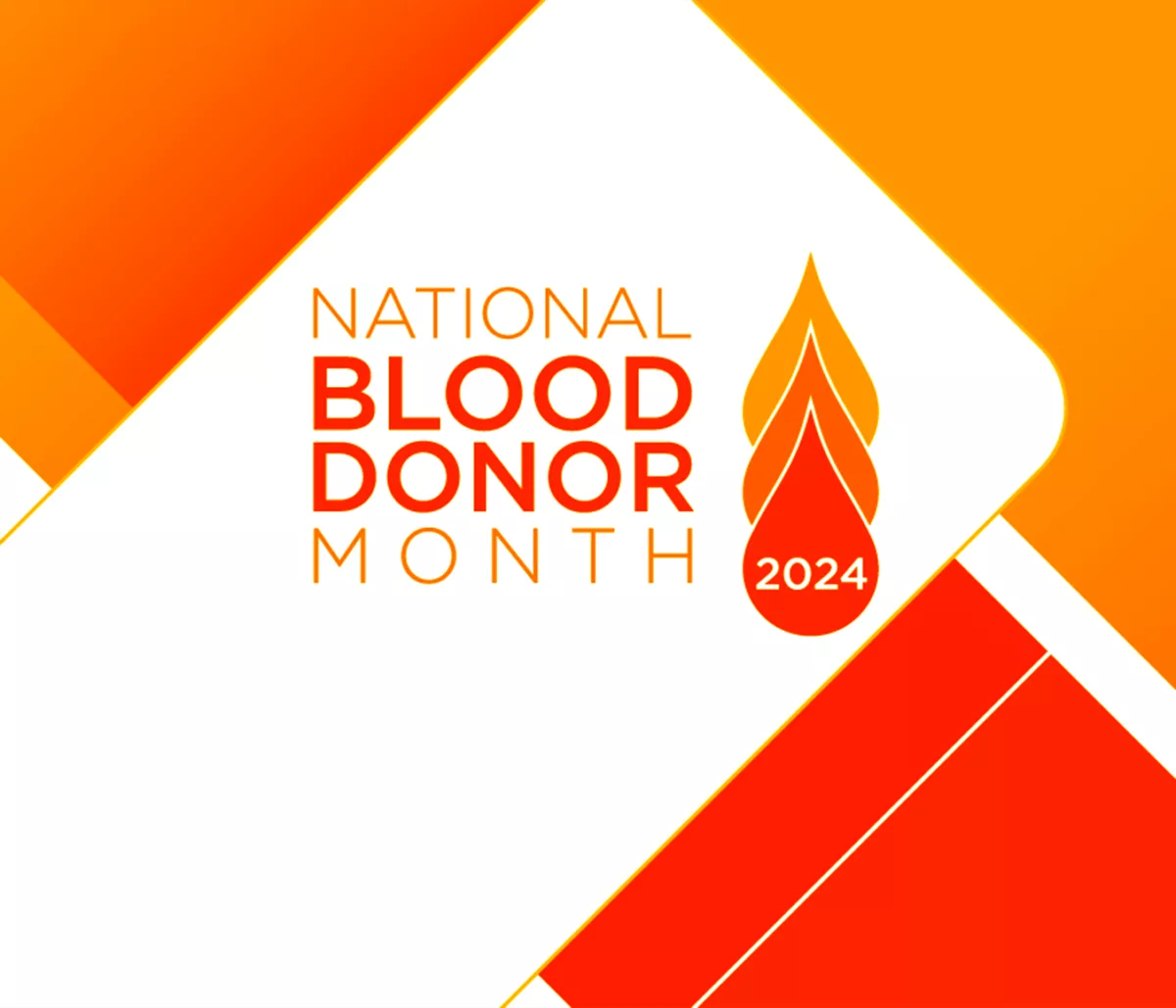Blogs
National Nutrition Month: Decoding Nutrition Basics
March 21, 2023Nutrition is the science of food and its relationship to health. It's important to know what you're eating, how much you're eating and why you're eating it. This can be a bit confusing at first if you're not used to thinking about what nutrients are in your food or how they affect your body.
You've probably heard lots of advice from everyone from fitness experts to doctors celebrities endorsing some diet or another. Knowing which advice to follow can be extremely tricky! This article gives you a crash course in nutrition basics so that you have all the knowledge you need to make healthy food choices for yourself and your family.
Nutrients:
Nutrients are the substances your body needs to function. They include proteins, carbohydrates, fats and others.
Nutrition is the study of nutrients. The word comes from two Latin words: nutrio (to nourish) and -tion (the act of).
You may have heard that there are three types of nutrients--macronutrients (carbohydrates, protein and fat), micronutrients (vitamins and minerals) and phytonutrients (phytochemicals). As their names suggest, macronutrients provide calories while micronutrients help our bodies function properly by providing essential vitamins and minerals needed for good health.
What do we eat?
There are several basic categories of food types. You've probably heard of carbohydrates which can be obtained from grains like wheat, barley, and rice. Fats are another main food group made up of lipids that can come from either plant or animal sources and provide denser amounts of calories and, as a result, energy. Last, we have proteins. These too can come from animal sources like meats, eggs, and dairy, or from plant sources like nuts and nut butters.
If you're new to the world of nutrition, it can be hard to keep track of all these terms. Just remember- carbohydrates are sugars, starches and fiber found in foods like pasta or bread; fats are triglycerides (a type of lipid); and protein is a combination of amino acids that make up our muscles.
Energy balance:
Energy balance is the relationship between the energy you consume and the energy you expend. The goal of National Nutrition Month is to help you understand how this relationship affects your weight, health and well-being.
Energy balance is a key factor in weight control because it determines whether we gain or lose weight. It's affected by many factors including genetics, age, gender and body composition (the amount of fat vs lean tissue). Energy balance can also be affected by activity level which means that if you burn more calories than what you eat, then there will be an excess of stored fat being broken down for energy purposes.
What is a healthy diet?
A healthy diet is one that provides the right amount of energy and nutrients. It should be well-balanced, with plenty of fruits, vegetables, grains and protein rich foods like meat or fish. A healthy eating plan will also include dairy products (such as milk) or alternatives such as nut milks; it may also include unsaturated oils such as olive oil if you eat them in moderation.
A balanced diet includes a variety of foods from each food group so you get all the nutrients your body needs for good health - vitamins, minerals and fiber from fruit and vegetables; protein from meat/fish/eggs etc.; carbohydrates from breads/pasta etc.; fats from oily fish like tuna.
Nutrient-dense vs. energy-dense foods:
Foods that are lower in calories and higher in nutrients are called "nutrient dense." They include fruits, vegetables, nuts and seeds. Foods higher in calories but lower in nutrients are called "energy dense," like chips and soda. Consuming too many energy-dense foods can lead to weight gain.
A nutrient-dense food contains a high amount of nutrients, such as vitamins and minerals, but a low amount of calories. Fruits and vegetables are examples of nutrient-dense foods.
Energy-dense foods have little or no nutritional value but lots of calories (or "energy"). Candies and soda are examples of energy dense foods.
To easily choose nutrient dense options over energy dense ones, opt for more fruits and vegetables. They're rich in fiber, vitamins A and C (and other antioxidants), and potassium- all things that can help lower blood pressure!
What are carbohydrates, fats and protein made of?
Carbohydrates are made of sugars, fats are made of triglycerides, and protein is made of amino acids.
Carbohydrates are sugars; they contain 4 calories per gram. Protein contains 4 calories per gram as well; however unlike carbohydrate sources it doesn't raise blood sugar levels so it doesn't cause an insulin spike like carbohydrates do when eaten alone. Fats contain 9 calories per gram but they don't raise blood sugar levels either so they make great additions to meals when paired with whole grains such as quinoa which provides slow burning steady energy throughout the day!
Are carbohydrates good or bad for you?
Carbohydrates are not good or bad for you. They're just carbs. That's why it's important to understand how your body uses them, so you can make informed decisions about which ones are best for you and your health goals.
Carbohydrates provide energy for your muscles and brain, helping you get through the day without feeling hungry or tired. Carbohydrates also provide fiber, which is important for digestion: it helps prevent constipation by adding bulk to stool so it passes through the colon more easily. This type of fiber helps lower blood sugar levels after meals by slowing down absorption of sugar into the bloodstream.
There are two types of carbohydrates: simple and complex. Simple sugars are found naturally in fruit juice and milk products; they're also added during processing as sweeteners such as high fructose corn syrup or cane sugar syrup.
The type of carbohydrate you eat determines how quickly it will be broken down into glucose (usable sugars) in your body. Carbohydrates with a high glycemic index (GI) cause a rapid rise in blood sugar levels after eating them because they break down quickly during digestion; these include white breads and pastas as well as fruit juices that have been processed from whole fruit. Foods with low-GI carbohydrates don't cause such an immediate spike in blood sugar levels; examples include whole grains like brown rice or oats.
How do fats affect your health?
Saturated fat is found primarily in animal products like red meat and butter. It's known to raise your low-density (LDL) or "bad" cholesterol. Animal products also contain monounsaturated fat, which lowers LDL cholesterol and raises high-density (HDL) cholesterol (the good kind). This type of fat comes from sources like olive oil and avocados. Next come polyunsaturated fats (PUFAs) -- omega-3 fatty acids, found in fish like salmon; beans; and nuts. PUFAs lower LDL cholesterol and triglycerides, plus raise HDL cholesterol even more than monounsaturated fats do. Omega-6 PUFAs are found in corn oil, peanut oil and soybean oil. These don't have the same heart benefits as omega-3s or monounsaturated fats do because they actually increase LDL cholesterol when consumed in large amounts.
There are three types of fat: saturated, monounsaturated and polyunsaturated. Saturated fats are the ones you want to try and avoid. They can be found in animal products like meat, cheese and butter. Monounsaturated fats (or MUFAs) are found in nuts like almonds or avocados and olive oil. Polyunsaturated fats (PUFAs) include fish oils like salmon as well as walnuts or sunflower seeds--the best way to get them is by eating a balanced diet that includes all three kinds of foods!
How many calories should I be eating?
Calories are a measure of energy. The number of calories in your diet determines how much energy you get from food, which is needed to fuel your body. Calories come from macronutrients: carbohydrates, fats, and proteins. Carbohydrates provide 4 calories per gram; fats provide 9 calories per gram; and proteins provide 4 calories per gram.
Calories can be found in almost every food. A few foods, such as celery, have the reputation of having "negative calories" because it is thought that the energy it takes to break down the food exceeds the energy provided by the food itself.
The answer to the question of how many calories you should be eating on a daily basis depends on your age, sex and activity level. Females typically need fewer calories than males because they tend to be smaller physically and have different body compositions on average. Similarly, the more active you are, the more energy (and calories) you'll need to maintain a healthy weight. Your caloric needs also change throughout the course of your life. A toddler doesn't need as many calories as a full-grown adult, but they still need enough to support their growing bodies.
Eating too few calories can be just as bad for your health as eating too many. Eating too little causes your body to start breaking down muscle to use as energy in the absence of nutrients from your diet. This can be confusing if you're on a weight loss journey- you need to eat fewer calories than you expend in order to lose weight, but you don't want to eat too few and compromise your metabolism!
Embracing gradual change is a great way to go about making changes to your calorie intake. Aim for a calorie deficit of 3-500 calories per day for weight loss, but don't resort to extreme diets or exercise regimens.
The more you know about nutrition, the healthier you can be.
A good diet is the foundation for a healthy lifestyle and can help prevent disease, promote weight loss and maintain your weight loss, or even help manage diabetes.
It takes time to learn how to eat well- it's not something that happens overnight or that all of us are taught from childhood. But once you start making small changes in your eating habits, they'll become easier over time until they become part of who you are as an individual (or family).
We hope you're ready to take on the world of nutrition! And remember, it's always best to talk with your doctor before making any major changes to your diet or exercise routine. By keeping these basics in mind, considering your overall balance of intake and output of energy, and eating a diverse diet rich in fruits and vegetables, you'll be well on your way to creating a diet that will support your health for decades to come!
No comments found.Leave a Comment

Breaking Barriers in Healthcare: The Inspiring Stories of Black American Trailblazers during Black History Month
During Black History Month, it is important to recognize and celebrate the incredible achievements and contributions of Black Americans in various fields. In the healthcare industry, Black Americans have played a crucial role in breaking barriers and paving the way for future generations. True Care Home Care is honored to highlight the inspiring stories of […]

10 Heart Healthy Tips
February is Heart Health Month, a time dedicated to raising awareness about cardiovascular health and promoting healthy habits. Taking care of your heart is essential for overall well-being and longevity. Whether you’re young or old, it’s never too early or too late to start prioritizing heart health. In this article, we will provide you with […]

The Top 10 Most Common Winter Ailments: What You Need to Know
The Top 10 Most Common Winter Ailments: What You Need to Know During the winter months, many people experience a variety of ailments that are specific to the season. These ailments can range from common colds and flu to more serious conditions like pneumonia and bronchitis. At True Care, your priority is your health so […]

Essential Tips for Keeping the Elderly Healthy and Happy in Winter
10 Essential Tips for Keeping the Elderly Healthy and Happy in Winter As the winter season approaches, it is important to ensure the health and happiness of our elderly loved ones. The colder temperatures and harsh weather conditions can pose significant challenges to their wellbeing. That is why True Care Home Care has compiled a […]

Saving Lives One Drop at a Time: Celebrating National Blood Donor Month
Saving Lives One Drop at a Time: Celebrating National Blood Donor Month Every January, National Blood Donor Month is celebrated in the United States to raise awareness about the importance of blood donation. This month-long campaign aims to honor the individuals who make a difference by donating blood and saving lives. By shedding light on […]
